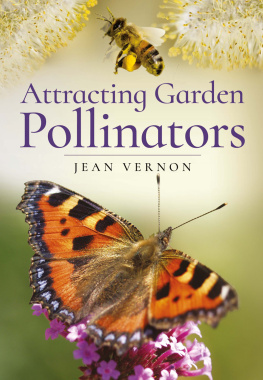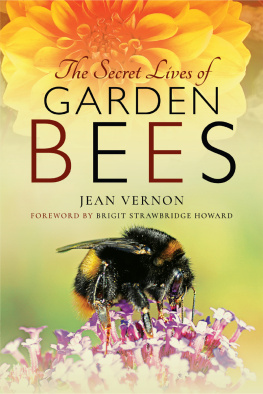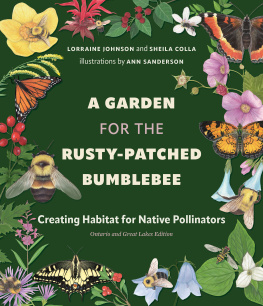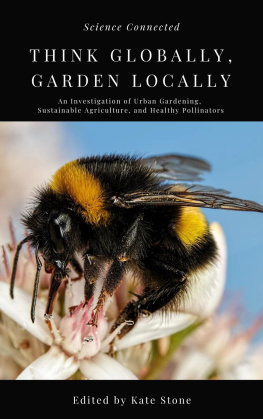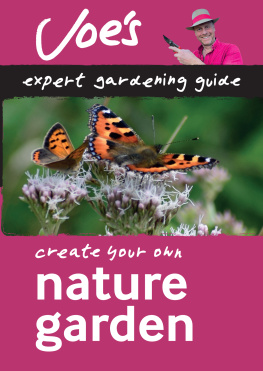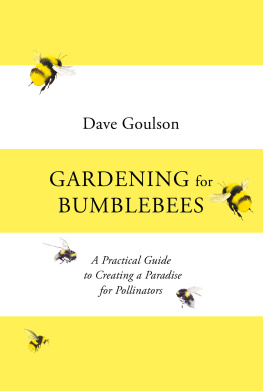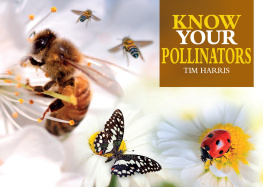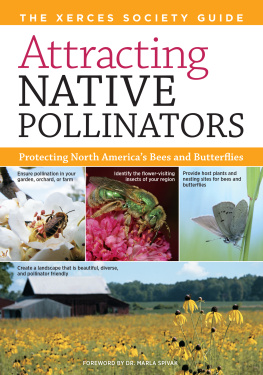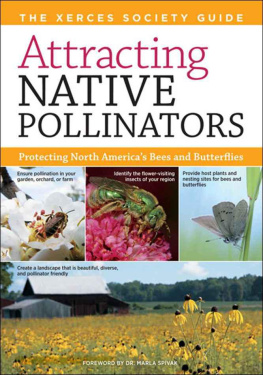Pagebreaks of the print version

ATTRACTING GARDEN
POLLINATORS
This book is dedicated to my Dad, Max, who always towered above, but treasured the little things in life. A giant, fluffy bumblebee reunited with his beautiful flower at last.
ATTRACTING GARDEN
POLLINATORS
JEAN VERNON
First published in Great Britain in 2022 by
Pen and Sword WHITE OWL
An imprint of
Pen & Sword Books Ltd
Yorkshire - Philadelphia
Copyright Jean Vernon, 2022
ISBN 978 1 52671 190 8
eISBN 978 1 52671 192 2
The right of Jean Vernon to be identified as Author of this work has been asserted by her in accordance with the Copyright, Designs and Patents Act 1988.
A CIP catalogue record for this book is available from the British Library.
All rights reserved. No part of this book may be reproduced or transmitted in any form or by any means, electronic or mechanical including photocopying, recording or by any information storage and retrieval system, without permission from the Publisher in writing.
Pen & Sword Books Ltd incorporates the imprints of Pen & Sword Books Archaeology, Atlas, Aviation, Battleground, Discovery, Family History, History, Maritime, Military, Naval, Politics, Railways, Select, Transport, True Crime, Fiction, Frontline Books, Leo Cooper, Praetorian Press, Seaforth Publishing, Wharncliffe and White Owl.
For a complete list of Pen & Sword titles please contact
PEN & SWORD BOOKS LIMITED
47 Church Street, Barnsley, South Yorkshire, S70 2AS, England
E-mail:
Website: www.pen-and-sword.co.uk
or
PEN AND SWORD BOOKS
1950 Lawrence Rd, Havertown, PA 19083, USA
E-mail:
Website: www.penandswordbooks.com
Introduction
T he interconnectedness of life never fails to amaze me. I am fascinated by the way that the animal and plant kingdom interact, the incredible evolutionary traits that plants use to attract insects and the remarkable ways that insects and other pollinators utilise plants to fuel their lifestyle and augment their survival. Its not just that plants need pollinators to reproduce, its also about how the right pollinator can perform such a delicate role, probably totally unaware of the chain of reactions that it starts as it feeds on the flowers.
In nature we observe all manner of intricate and fragile relationships between predators and prey as well as plants and pollinators. Often these are the results of millennia of evolution, with the plants evolving alongside the pollinators that seek out their pollen and nectar. And yet our gardens are not natural. They are the canvas of painters whose paint pallete is plants, whose inspiration is magazines and flower shows and whose brushes are trowels and forks. Quite often these gardens, our personal pride and joy, are packed full of plants from all over the world, rubbing leaves and stems with each other in new combinations and with unexpected consequences.
Gardeners have stopped nature in her tracks to manipulate, embellish and dramatise a patch until it is full to bursting with plants from far distant shores mixed in with natives and embellished with pots and planters of fabulous flamboyant flowers and foliage.
Despite this, our gardens are made up of layer upon layer of interconnected and fragile relationships. Its an entangled web of life so complicated and at times so brutal that it would make a soap opera look tame. And yet its quite magical too. Left to her own devices nature always rebalances and overcomes challenges in unexpected but often very efficient ways. While man seems intent on poisoning the planet and milking every last resource from her grips, nature finds a way to rise to the challenge.
But gardens and urban plots, be they small scale, large or allotments, are hot spots of pollinator diversity and abundance (). And as the pandemic rolls on the importance of homegrown food and immersing ourselves in nature for our physical and mental health has become all too clear. Just like the pollinators, we crave and need a rich diversity of flowering plants.
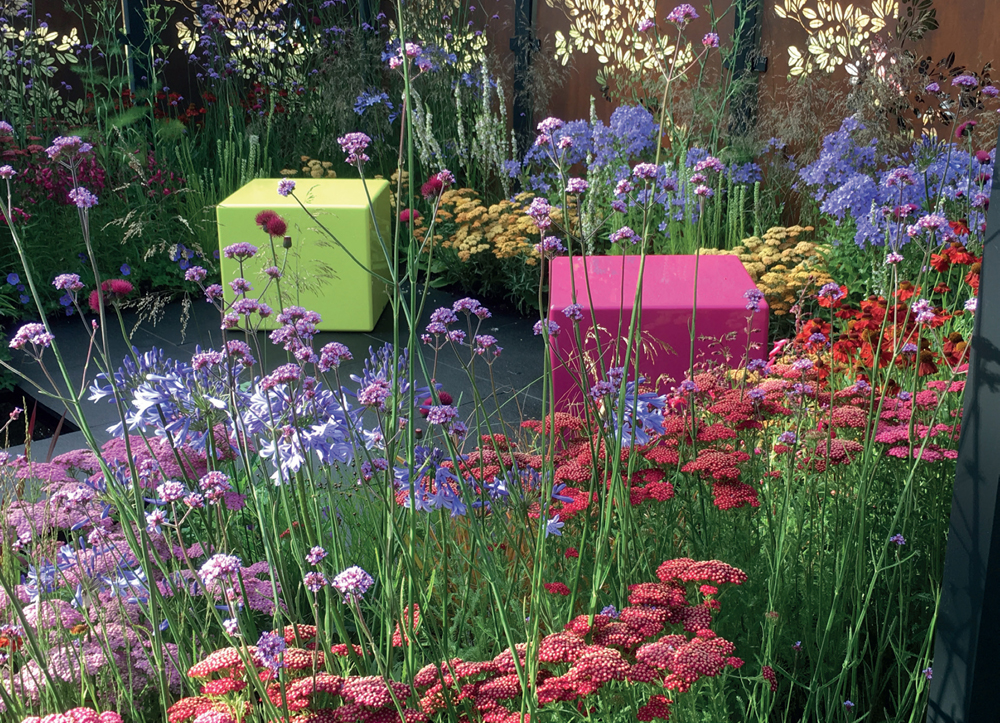
Gardens small or large, modern or cottage or wild have the potential to support garden pollinators. JeanVernon/HamptonCourtFlowerShow2017/ColourBoxGarden/Charlie Bloom/Simon Webster.
Pollinator Heroes
Insects are everywhere, present in every environment known to man in quantities and a diversity that is hard to visualise. And yet generally we dismiss them, ignore them and rarely appreciate the vital role that they play in nature. Some people find them repulsive, others regard them as pests or plagues, and rarely do we look deeper at their inherent beauty or relate to them and their important roles in our lives. Insects are virtual aliens but without them human life as we know it would either not exist at all, or would be completely and totally different.
Every dimension of our world is rich in insect life; they are the most abundant creatures on earth and yet they are rarely revered and often badly understood.
Peer a little closer and you will discover that these creatures have beautiful faces, a caring/nurturing nature and really fascinating lives. Pollinators are the charismatic elephants and fluffy tigers of the insect world and need our attention and respect more than ever.
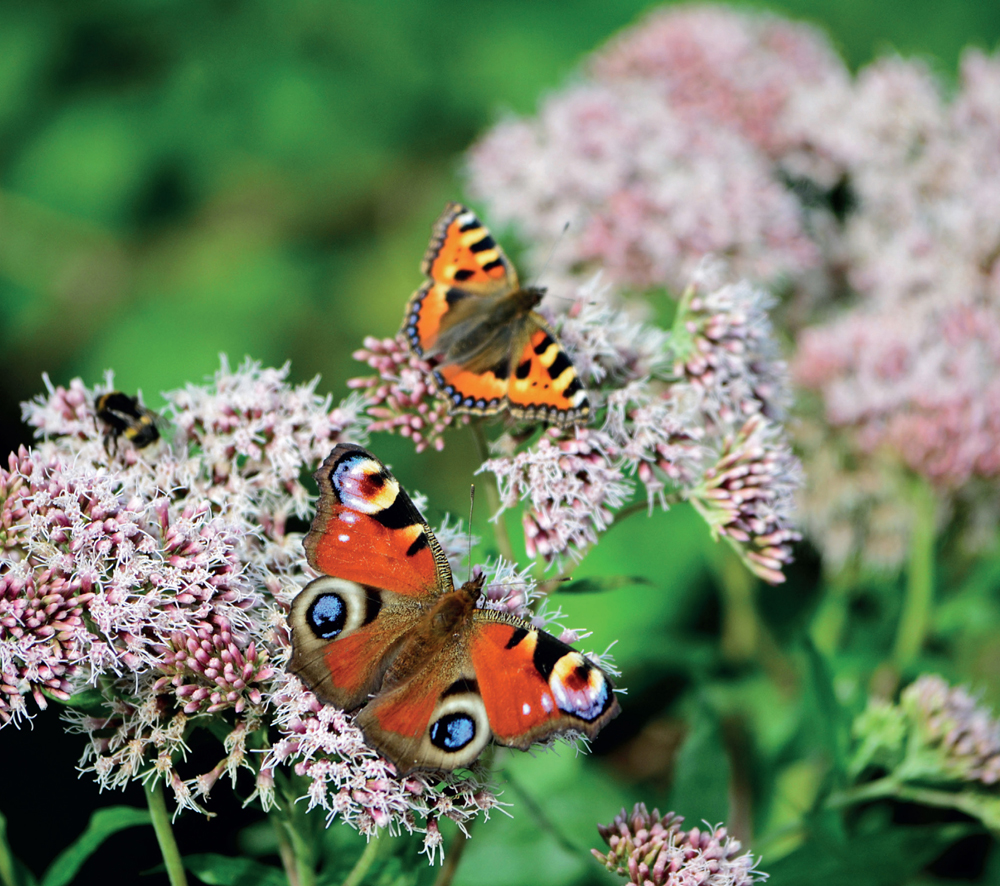
Pollinators are all around us. Here three species share the flower head of one plant. Lance Featherstone.
If you still struggle to fall in love with insects, then pledge to make an exception and join me in my quest to bring the world of pollinators to your attention. These are mostly insects and its time that their incredible contribution to our world, our gardens and our food was put firmly into the light. Without our precious pollinators we would be in serious trouble and as gardeners we can make huge differences to their survival, existence and lives. Now is the time to really step up and take a closer look at insects, starting with pollinators.
Let me take you on a journey to explore some of the incredible insects that work for us; they are exploited, underpaid and generally underappreciated, but these little creatures are so important that they need a fresh campaign to tell everyone about them, before it is too late.
CHAPTER ONE
What is a Pollinator?
W e take pollinators for granted. And yet these are the creatures that live alongside us, within nature and the landscapes and gardens that we have created or even sometimes destroyed. We dont always see them, we exploit them, and sometimes we kill them, but without their help we would surely starve. For not only do they pick up and deliver pollen to the plants we need for food, but they also ensure that the cattle and livestock are fed, that we have seed to sow and that our cupboards, fridges and fruit bowls are full of nuts, seeds, fruits and vegetables.
Pollinators live their lives adjusting to the pressures that we have created in their world, navigating the landscape changes we have carved on their habitats and feeding on the plants that we allow to grow.
Scientists frequently research and study these fascinating creatures. Quite incredibly some engineers believe that they can create miniature robot pollinators or pollinating techniques that will replace this essential role. They have an apparent misunderstanding of the incredible complexities that exist in the intimate relationships between plants and pollinators and the fragile knife-edge that these precious creatures balance upon.

